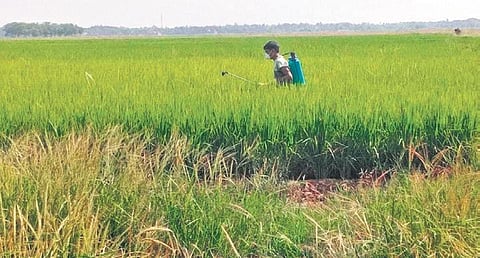

NEW DELHI: For the first time in India, the Food Safety and Standards Authority of India (FSSAI) has come out with comprehensive standards for the identification of Basmati rice in its efforts to ensure fair trade practices and check adulteration.
These standards, which have been notified, will be effective from August this year, a statement issued Thursday said. As per these standards, Basmati rice should have a natural fragrance characteristics of basmati rice and there should be no artificial colouring, polishing agents and artificial fragrances.
According to the FSSAI, these regulatory standards for basmati rice will also be applicable for brown Basmati Rice, milled Basmati rice, parboiled brown Basmati rice and milled parboiled Basmati rice, following Food Safety and Standards (Food Products Standards and Food Additives) First Amendment Regulations, 2023 notified in the Gazette of India.
These standards also specify various identity and quality parameters for Basmati rice such as average size of grains and their elongation ratio after cooking; maximum limits of moisture, amylose content, uric acid, defective/damaged grains and incidental presence of other non-Basmati rice etc.
“The standards are aimed at establishing fair practices in the trade of Basmati rice and protect consumer interest, both domestically and globally,” the statement said. Basmati rice is a premium variety of rice cultivated in the Himalayan foothills of the Indian sub-continent and is universally known for its long grain size, fluffy texture and unique inherent aroma and flavour.
Agro-climatic conditions of the specific geographical areas where Basmati rice is grown; as well as the method of harvesting, processing and ageing of the rice contributes to the uniqueness of Basmati rice.
Due to its unique quality attributes, Basmati is a widely consumed variety of rice both domestically and globally and India accounts for two-thirds of the supply in markets across the world.